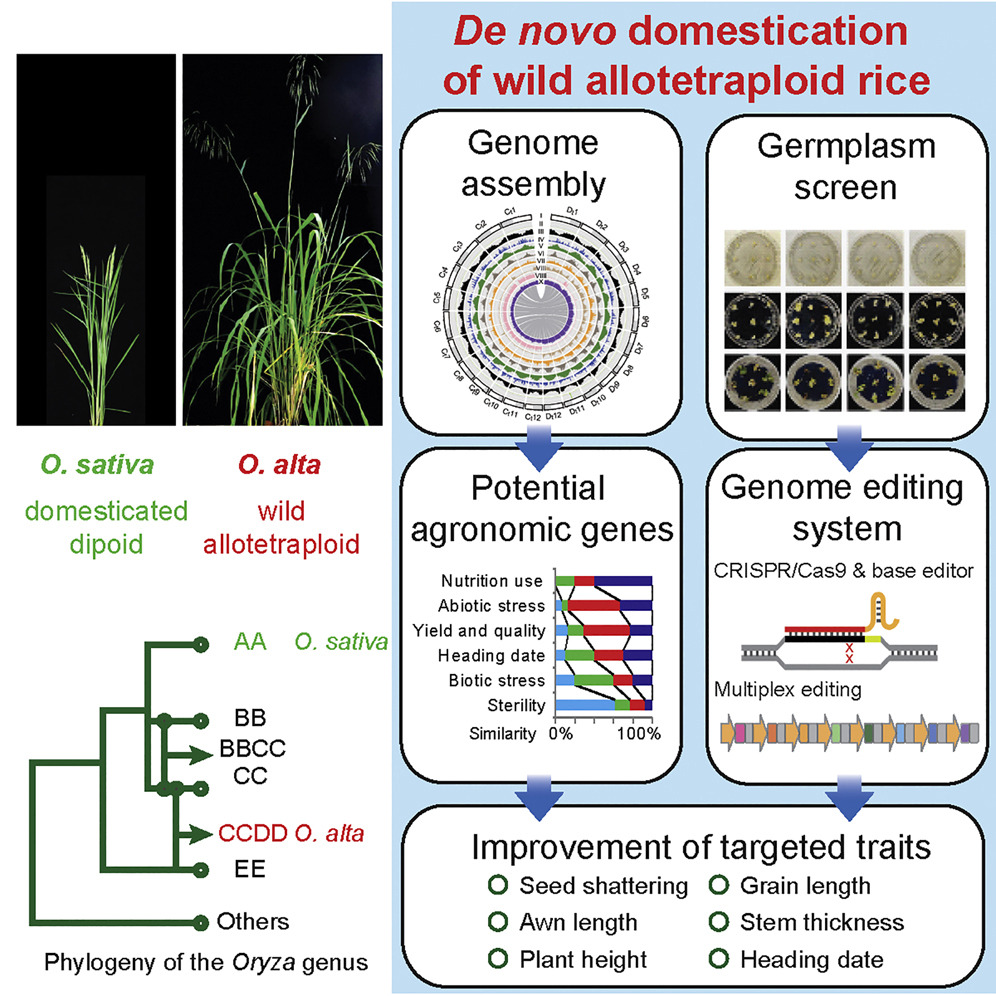Prof. LI Jiayang's group from the Institute of Genetics and Developmental Biology of the Chinese Academy of Sciences and his collaborators made a breakthrough toward creating novel crops through de novo domestication of wild allotetraploid rice, which has launched a revolution for sustainable agriculture in creating future crops.
This work entitled "A route to de novo domestication of wild allotetraploid rice" has been published online in Cell on February 3, 2021. Food security has put enormous pressure on increasing the yield per unit area, and it has become worse owing to rapid climate changes. Cultivated rice is now the staple food feeding more than half of the world's population, which is all diploid.
Domestication of wild rice into cultivated crops spends thousands of years, accompanied with narrowed genetic diversity in the species populations. Compared with the cultivated diploid rice, South American species with a polyploid CCDD genome show a significantly higher biomass and greater resistance to biotic and abiotic stresses.
To create novel polyploid rice crop, Prof. LI has launched a strategy for de novo domestication of wild allotetraploid rice, which includes four steps, selecting a wild allotetraploid rice material suitable for de novo domestication; establishing an efficient transformation system for the targeted material; assembling and analyzing a high-quality reference genome of the material; and targeted editing of several domestication- and agronomy-related key genes to improve the important traits.
They then screened allotetraploid wild rice inventory and identified one genotype of O. alta (CCDD), Polyploid Rice 1 (PPR1) to establish two important resources for its de novo domestication. With these resources they showed that six agronomically important traits could be rapidly improved by editing O. alta homologs of the genes controlling these traits in diploid rice.
These results demonstrated that the proposed strategy is rational and practical, and de novo domesticated allotetraploid rice can be developed into a new staple cereal to strengthen world food security.
This work was supported by the National Natural Science Foundation of China and the Strategic Priority Research Program of the Chinese Academy of Sciences.
Figure. De novo domestication of wild allotetraploid rice (Image by IGDB)


